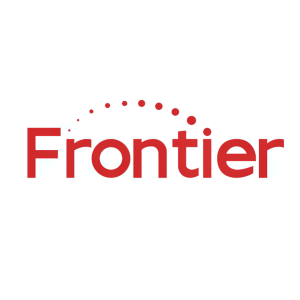Frontier Plans to Exceed Fiber Build Target in 2022
Frontier Communications Parent, Inc. (NASDAQ: FYBR) plans to exceed its 2022 target of 1 million fiber locations by an additional 100,000-200,000, according to CFO
- Plans to exceed 1 million fiber locations by 100,000-200,000 in 2022.
- Maintaining a net leverage ratio of 2.5x with
$4 billion in liquidity.
- None.
Insights
Analyzing...
CFO Updates Shareholders at

What happened?
What was said?
Relating to the fiber build, Beasley announced that:
- Frontier plans to accelerate the fiber build, and now expects to exceed its 2022 build target of 1 million fiber locations by an additional 100,000-200,000 locations.
-
Frontier continues to expect a cost of
$900 -1000 -
The recent closing of
$1.2 billion $4 billion
Is there a replay?
A replay of the presentation is available in the Events & Presentations section of Frontier’s Investor Relations website.
1 Net leverage ratio is a non-GAAP measure. See “Non-GAAP Measures” contained herein for a description and calculation of net leverage ratio.
About Frontier
Frontier is a leading communications provider offering gigabit speeds to empower and connect millions of consumers and businesses in 25 states. It is building critical digital infrastructure across the country with its fiber-optic network and cloud-based solutions, enabling connections today and future proofing for tomorrow. Rallied around a single purpose, Building Gigabit America™, the company is focused on supporting a digital society, closing the digital divide, and working toward a more sustainable environment. Frontier is preparing today for a better tomorrow. Visit frontier.com.
Non-GAAP Financial Measures
Frontier uses certain non-GAAP financial measures in evaluating its performance, including EBITDA, EBITDA margin, Adjusted EBITDA, Adjusted EBITDA margin, operating free cash flow, adjusted operating expenses, and net leverage ratio, each of which is described below. Management uses these non-GAAP financial measures internally to (i) assist in analyzing Frontier's underlying financial performance from period to period, (ii) analyze and evaluate strategic and operational decisions, (iii) establish criteria for compensation decisions, and (iv) assist in the understanding of Frontier's ability to generate cash flow and, as a result, to plan for future capital and operational decisions. Management believes that the presentation of these non-GAAP financial measures provides useful information to investors regarding Frontier’s financial condition and results of operations because these measures, when used in conjunction with related GAAP financial measures, (i) provide a more comprehensive view of Frontier’s core operations and ability to generate cash flow, (ii) provide investors with the financial analytical framework upon which management bases financial, operational, compensation, and planning decisions, and (iii) present measurements that investors and rating agencies have indicated to management are useful to them in assessing Frontier and its results of operations.
EBITDA is defined as net income (loss) less income tax expense (benefit), interest expense, investment and other income (loss), pension settlement costs, reorganization items, and depreciation and amortization. EBITDA margin is calculated by dividing EBITDA by total revenue.
Adjusted EBITDA is defined as EBITDA, as described above, adjusted to exclude certain pension/OPEB expenses, restructuring costs and other charges, stock-based compensation, and certain other non-recurring items.
Net leverage ratio is calculated as net debt (total debt less cash and cash equivalents and short-term investments) divided by Adjusted EBITDA for the most recent four quarters. Investors have indicated that this non-GAAP measure is useful in evaluating Frontier’s debt levels.
Forward-Looking Statements
This release contains “forward-looking statements” related to future events. Forward-looking statements address our expectations or beliefs concerning future events, including, without limitation, the transactions contemplated herein and the use of proceeds therefrom. These statements are made on the basis of management’s views and assumptions, as of the time the statements are made, regarding future events and performance and contain words such as “expect,” “anticipate,” “intend,” “plan,” “believe,” “seek,” “see,” “may,” “will,” “would,” or “target.” Forward-looking statements by their nature address matters that are, to different degrees, uncertain. A wide range of factors could materially affect future developments and performance, including but not limited to: our significant indebtedness, our ability to incur substantially more debt in the future, and covenants in the agreements governing our current indebtedness that may reduce our operating and financial flexibility; declines in Adjusted EBITDA relative to historical levels that we are unable to offset; our ability to successfully implement strategic initiatives, including our fiber buildout and other initiatives to enhance revenue and realize productivity and service improvements; our ability to secure necessary construction resources, materials and permits for our fiber buildout initiative in a timely and cost effective manner; potential disruptions in our supply chain and the effects of inflation resulting from the COVID-19 pandemic, the global microchip shortage, or otherwise, which could adversely impact our business and hinder our fiber expansion plans; our ability to effectively manage our operations, operating expenses, capital expenditures, debt service requirement and cash paid for income taxes and liquidity; competition from cable, wireless and wireline carriers, satellite, fiber “overbuilders” and OTT companies, and the risk that we will not respond on a timely or profitable basis; our ability to successfully adjust to changes in the communications industry, including the effects of technological changes and competition on our capital expenditures, products and service offerings; risks related to disruption in our networks, infrastructure and information technology that result in customer loss and/or incurrence of additional expenses; the impact of potential information technology or data security breaches or other cyber-attacks or other disruptions; our ability to retain or attract new customers and to maintain relationships with customers; our reliance on a limited number of key supplies and vendors; declines in revenue from our voice services, switched and nonswitched access and video and data services that we cannot stabilize or offset with increases in revenue from other products and services; our ability to secure, continue to use or renew intellectual property and other licenses used in our business; our ability to hire or retain key personnel; our ability to dispose of certain assets or asset groups or to make acquisition of certain assets on terms that are attractive to us, or at all; the effects of changes in the availability of federal and state universal service funding or other subsidies to us and our competitors and our ability to obtain future subsidies, including participation in the proposed RDOF program; our ability to comply with the applicable
View source version on businesswire.com: https://www.businesswire.com/news/home/20220518006160/en/
Investor
SVP, Investor Relations
+1 401 225 0475
spencer.kurn@ftr.com
Media
Frontier Communications
VP, Corporate Communications
504-952-4225
Chrissy.murray@ftr.com
Source:







